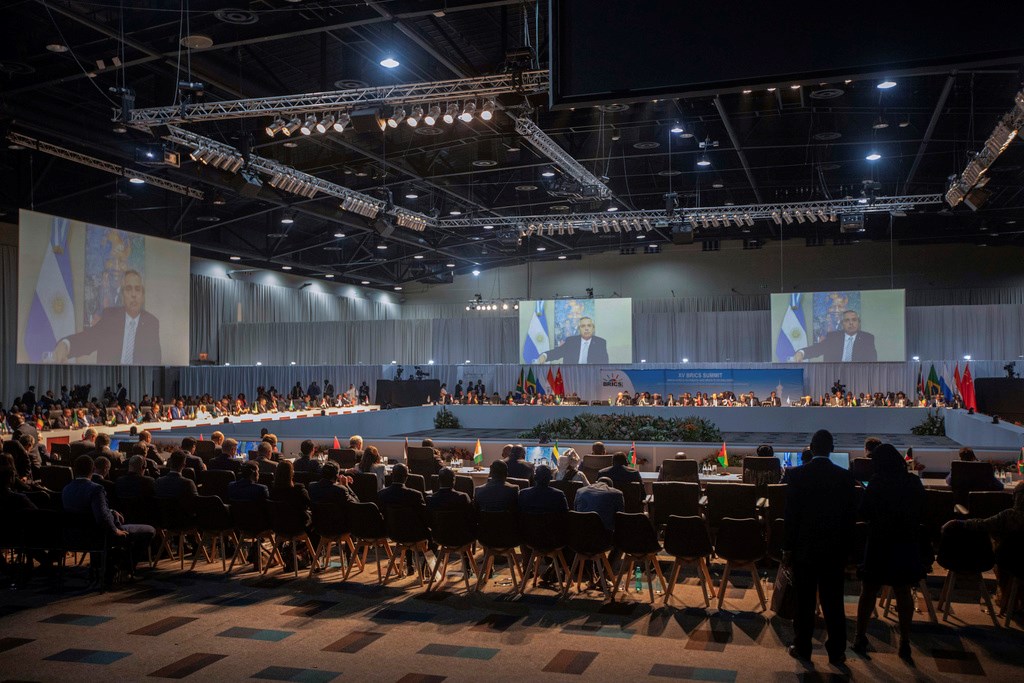BRICS promotes cooperation not confrontation: Ex-World Bank executive
Former World Bank executive Rogerio Studart denied any conspiracy theories about BRICS being a Cold War-type confrontational bloc.
-

Argentine President Alberto Angel Fernandez appears on a screen as he addresses the 15th BRICS Summit, in Johannesburg, South Africa, Thursday, Aug. 24, 2023 (Kim Ludbrook/Pool via AP)
In the wake of the recent expansion of the BRICS group, concerns have arisen about whether this move would coalesce Cold War-type confrontational blocs, Sputnik reported.
However, former executive director of both the World Bank and the Inter-American Development Bank, Rogerio Studart, has contended these claims arguing that the true motive behind BRIC's is promoting international cooperation.
Studart emphasized that the expansion of BRICS is not geared towards antagonizing other trade blocs or instigating a new Cold War-like standoff among nations.
"I don't like the narrative that... this is a bloc that is expanding to confront another bloc," Studart said, challenging the oversimplification of the matter.
Read more: At France's request, India blocks Algeria's BRICS+ bid
"I think it's much more complex. We have a collective failure in addressing the most important issues that we have in front of us, from inequality, geopolitical issues, climate change, poverty – that is, for me, the heart of the problem, not that we have two blocs trying to establish another Cold War or something like that".
Studart's perspective sees the expansion of BRICS as a catalyst for enhanced international cooperation rather than confrontation. He expressed optimism that this expansion could pave the way for collective efforts to combat pressing global challenges, such as inequality, climate change, and geopolitical tensions. At the core of this issue lies a growing disillusionment with the efficacy of the existing multilateral system.
"The main problem is that the multilateral system has been failing countries for too many years," Studart commented, shedding light on the frustration that has fueled the BRICS initiative. Traditional institutions like the International Monetary Fund (IMF) and the World Bank have fallen short of expectations, particularly in the aftermath of the 2009 financial crisis.
Read more: Xi refused Macron's attendance at BRICS summit: Intelligence Online
Studart highlighted the fact that the establishment of the BRICS grouping itself was a response to the shortcomings of the existing multilateral institutions. Designed to accommodate the diverse interests of emerging market nations, BRICS aimed to create a platform where these nations could collaborate effectively. The expansion of BRICS further underscores this intent, aiming to foster better cooperation and coordination in tackling global issues.
Last week, BRICS formally invited Argentina, Egypt, Iran, Ethiopia, the UAE, and Saudi Arabia to join the organization.
The admission of new members into BRICS is the first stage of the group's expansion process, South African President Cyril Ramaphosa noted after announcing the invite.

 3 Min Read
3 Min Read








